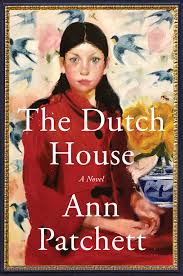Chapter 3
byChapter 3 introduces a major shift in the Conroy household when Andrea, nearly two years into her unpredictable presence, arrives unexpectedly with her daughters, Norma and Bright. This moment feels like an informal declaration that they, too, will now be part of the Dutch House, a realization that unsettles Danny and Maeve. While neither sibling was aware of their existence until that day, they soon suspect that their father had known about the girls all along, his casual indifference indicating that Andrea’s presence was more intentional than they had assumed. In their hearts, Danny and Maeve secretly hoped that this sudden revelation would lead their father to rethink his relationship with Andrea, believing he would never willingly take on the burden of two more children. However, to their disappointment, Andrea’s daughters quickly became a regular presence, an undeniable force reshaping the family’s once-familiar dynamics.
Despite their initial resistance, the siblings found themselves reluctantly taking on an unspoken role in the lives of Norma and Bright, especially when Andrea was absent. On one occasion, when Andrea and their father went out for the evening, Maeve took it upon herself to show the girls around, leading them on an extensive tour of the Dutch House. The grand, mysterious home, filled with hidden rooms and long-forgotten spaces, became a source of both awe and unease for the young girls. Maeve’s approach was both playful and pointed, treating the tour as a lesson in history as much as an introduction, subtly reinforcing that she and Danny belonged to the house in a way Andrea’s daughters never truly could. This moment of shared curiosity also highlighted a fundamental contrast—Norma and Bright, while mesmerized by the house, approached its luxury with an ease that suggested they were already settling into its grandeur, while Danny and Maeve still felt the weight of the home’s history pressing down on them.
At the family dinner the following night, the simmering tension boiled over when Maeve boldly challenged their father about the expectation that she and Danny would care for Andrea’s children. Her directness, a quality both admirable and risky in their household, made clear that while she accepted responsibility for Danny, she refused to be held accountable for Andrea’s daughters. Their father’s response was predictably dismissive, reminding them that as long as they lived under his roof, they were expected to abide by his rules. This exchange revealed the growing divide between the siblings and their father, exposing the deeper implications of Andrea’s influence over him. It also reinforced a painful truth—despite the love Danny and Maeve had for their father, his priorities were shifting, and Andrea’s place in their lives was becoming permanent.
As the days passed, the Dutch House itself seemed to bear witness to these changes, a silent observer to the shifting power dynamics within its walls. Once a symbol of security and family legacy, it now represented something more fragile, something that could slip away at any moment. The siblings, sensing the beginning of an irreversible transformation, clung tightly to each other, knowing that their unity was the only stable force amidst the uncertainty. They felt as though they were being edged out of their own home, not through outright force, but through the gradual erosion of their importance in their father’s eyes. Maeve, sharp and defiant, remained resolute in her stance against Andrea’s growing control, while Danny, still grappling with the complexities of the situation, found himself watching and waiting, uncertain of what the future held.
The chapter closes on a note of quiet rebellion and uneasy submission, leaving the siblings at a crossroads. While Andrea and her daughters were quickly solidifying their place within the Dutch House, Maeve and Danny were beginning to feel like unwelcome guests in their own home. This growing conflict set the stage for what was to come, foreshadowing the long-lasting resentment and fractured relationships that would define their family’s history. Through these interactions, the narrative paints a compelling portrait of loyalty, power, and the slow unraveling of what was once a stable household.


